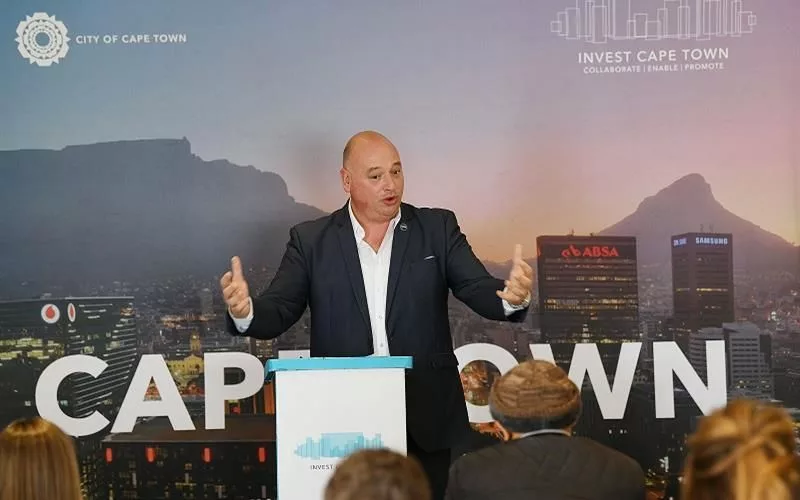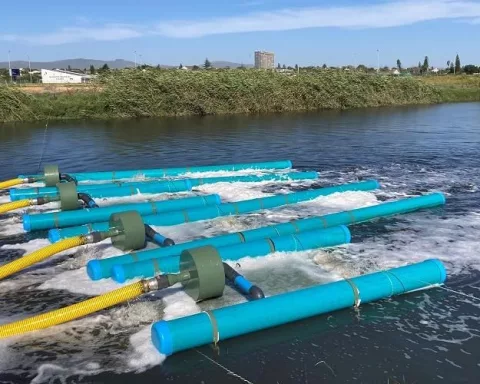Cape Town’s business retention and expansion scheme, launched in 2020, has significantly impacted the city’s economy. The initiative has fostered business growth, modernization, and joint energy management, with businesses saving over R11 million in the first quarter of the 2023/2024 fiscal year. The Load Curtailment Programme encourages companies to decrease energy usage, minimizing the risk of load shedding. The program plans to expand its influence to additional areas, extending benefits to a broader spectrum of businesses.
How has Cape Town’s Business Retention and Expansion scheme impacted the city’s economy?
The Business Retention and Expansion scheme has significantly influenced Cape Town’s industrial sectors, fostering business growth, modernization, and joint energy management. The Load Curtailment Programme encourages businesses to decrease energy usage, minimizing the risk of load shedding. Incentive schemes have made Cape Town more attractive to investors, with enterprises saving over R11 million in the first quarter of the 2023/2024 fiscal year. Future expansion plans aim to extend the scheme’s influence to a broader spectrum of businesses.
A significant shift has occurred in Cape Town’s industrial sectors, due to the introduction of the Business Retention and Expansion (BR&E) scheme. Alderman James Vos, a crucial member of the Mayoral Committee for Economic Growth, is the mastermind behind this influential programme, launched in October 2020. Originating in the Atlantis industrial area, the programme has progressively extended its influence to Stikland and Epping, significantly amplifying the city’s business prosperity.
The Nurturing Power of the BR&E
The BR&E scheme is a cornerstone in reinforcing the local economy, as it has a core mission to foster business growth and modernization. Operating under the broader structure of the Investment Facilitation Branch, the BR&E collaborates rigorously with industrial businesses and multiple city improvement districts. Concentrating on localized and more expansive issues affecting companies, the scheme has proven indispensable in creating a propitious business environment.
The BR&E has confronted several significant challenges, with load-shedding being a major one. Reacting promptly to this predicament, the BR&E, along with the city’s Energy Department, launched the Load Curtailment Programme. This initiative encourages businesses to play an active role in decreasing the city’s overall energy usage, which in turn minimizes the risk of load shedding.
Collaborative Energy Management: Load Curtailment Programme
The Load Curtailment Programme is an innovative scheme which has presented a unique proposition for Big Power Users. In line with the national code of practice for load-shedding, these users can avoid the disruption of load-shedding by committing to a set load curtailment. This strategic approach exemplifies the city’s commitment to joint energy management.
Already in its initial stage, the project has launched 16 active initiatives and engaged around 400 businesses in areas like Bellville, Elsies River, Steenberg, Parow, and Milnerton. These enterprises are considering the adoption of solar installations and potentially selling surplus power back to the city. Furthermore, the city is collaborating with Eskom to implement the load curtailment pilot in Blackheath Industria, an Eskom-powered region.
Enhancing Investors’ Appeal and Industrial Progression
The Investment Facilitation Branch has a critical function in enhancing Cape Town’s attractiveness to investors through various incentive schemes. For example, enterprises in the Atlantis Industrial region saved over R11 million in the first quarter of the 2023/2024 fiscal year thanks to waived building plan application fees and a decrease in electricity incentive tariffs. This occurred following a notable performance in the previous 2022/2023 fiscal year, where incentive savings amounted to R33.1 million.
The increasing economic vigor of Atlantis Industrial validates the effectiveness of these initiatives. Based on an exhaustive industrial survey conducted by the City of Cape Town’s Metropolitan Spatial Planning Team in 2017, Atlantis Industrial emerged as a specialized manufacturing industrial zone. The accelerated economic development of Atlantis highlights its strategic significance in advocating specialized manufacturing activities within the region.
Future Expansion and Collective Efforts
The BR&E unit has set ambitious goals for the future. Plans are underway to include additional areas such as Elsies River, Montague Gardens, Paarden Eiland, and Airport Industria. This strategic expansion aims to extend the scheme’s influence and bring benefits to a broader spectrum of businesses.
Alderman Vos firmly believes in the effectiveness of partnerships and programmes like BR&E. He credits Cape Town’s status as South Africa’s hub of investment and job creation to these joint endeavors. With a mission to support local entrepreneurs and businesses, Cape Town continues to stand out as a beacon of economic advancement.
For further details on the BR&E programme and other initiatives, potential investors and interested parties can contact the Investment Facilitation Branch via email.
What is the Business Retention and Expansion scheme in Cape Town?
The Business Retention and Expansion (BR&E) scheme is an initiative launched in 2020 to foster business growth, modernization, and joint energy management in Cape Town’s industrial sectors. It operates under the broader structure of the Investment Facilitation Branch and collaborates with industrial businesses and multiple city improvement districts.
What is the Load Curtailment Programme, and how does it work?
The Load Curtailment Programme is part of the BR&E scheme and encourages businesses to play an active role in decreasing the city’s overall energy usage, which in turn minimizes the risk of load shedding. Big Power Users commit to a set load curtailment to avoid the disruption of load-shedding. The program plans to expand its influence to additional areas, and enterprises are considering adopting solar installations and potentially selling surplus power back to the city.
How has the BR&E scheme enhanced investor appeal and industrial progression in Cape Town?
The Investment Facilitation Branch, operating under the BR&E scheme, enhances Cape Town’s attractiveness to investors through various incentive schemes. For example, enterprises in the Atlantis Industrial region saved over R11 million in the first quarter of the 2023/2024 fiscal year thanks to waived building plan application fees and a decrease in electricity incentive tariffs. The accelerated economic development of Atlantis highlights its strategic significance in advocating specialized manufacturing activities within the region.
How has the Load Curtailment Programme impacted businesses in Cape Town?
The Load Curtailment Programme has encouraged businesses to decrease energy usage, minimizing the risk of load shedding. Incentive schemes have made Cape Town more attractive to investors, with enterprises saving over R11 million in the first quarter of the 2023/2024 fiscal year. Already in its initial stage, the project has launched 16 active initiatives and engaged around 400 businesses in areas like Bellville, Elsies River, Steenberg, Parow, and Milnerton.
What are the future expansion plans for the BR&E scheme?
The BR&E unit has set ambitious goals for the future, with plans underway to include additional areas such as Elsies River, Montague Gardens, Paarden Eiland, and Airport Industria. This strategic expansion aims to extend the scheme’s influence and bring benefits to a broader spectrum of businesses.
How can potential investors and interested parties contact the Investment Facilitation Branch for more details?
Potential investors and interested parties can contact the Investment Facilitation Branch via email for more details on the BR&E programme and other initiatives.












